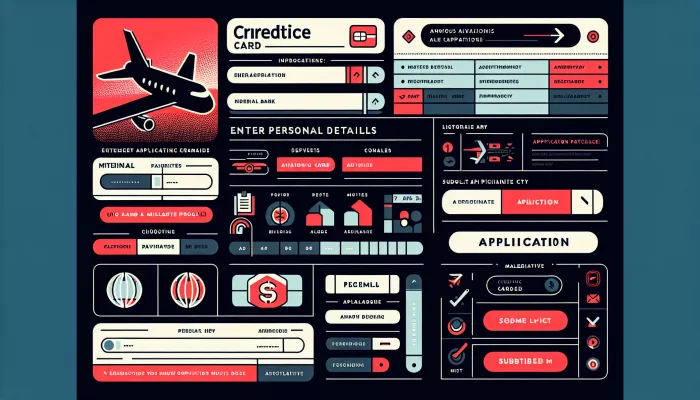
How to choose the best credit card for your needs
Select the credit card best suited to your financial needs requires a detailed evaluation of several factors.
This guide will help you identify the main aspects that should be considered to make an informed choice.
Ensuring that your new credit card is not only a convenience tool but also an ally in your financial control and in achieving your goals.

First, it is essential to understand your consumption profile. Analyze your monthly expenses and determine whether they are higher in specific categories, such as travel, groceries or restaurants.
There are cards that offer targeted benefits for these areas, increasing the return on expenses.
To the interest rates charged by your card issuer can have a big impact on the cost of credit, especially if you tend to carry a balance from month to month.
Evaluate the Total Effective Cost (CET) and compare different options to find lower rates.
Some companies charge a annual fee for using the card, while others waive this fee if a certain amount is spent annually.
Make sure that any additional fees and charges are clear to you and that you are willing to comply with them before making your decision.
THE grace period allows you to pay no interest if you pay the full balance of your bill by a certain date.
Compare the periods offered by different cards to maximize the period in which your money can yield more in other applications without incurring interest on the card.
THE credit limit offered must correspond to your payment capacity.
A limit that is too high can lead to unnecessary spending, while a limit that is too low can be limiting and inconvenient.
Analyze the loyalty programs. If traveling is a constant in your life, for example, cards with mileage programs can be highly advantageous.
Check the security features offered by the card, such as SMS alerts, blocking and unblocking the card via app, and contactless payment technology.
This aligns with your digital lifestyle and offers convenience and security.
Finally, consider reading reviews and opinions from other users about the credit card.
They can provide insights into the quality of customer service and other nuances that may not be as evident initially.
Remember that choosing a credit card should take into account your personal finances and spending habits.
With conscious planning and an assertive choice, you can make the most of the benefits that a credit card offers without compromising your budget.
Develop a monthly budget detail your income and expenses. Include a specific category for credit card expenses, ensuring that you don't spend more than you can afford.
For example, Do your best to pay the full balance your credit card each month to avoid interest. Paying only the minimum can result in mounting debt.
Still, Cash withdrawals They often have high fees and interest that starts accruing immediately, so avoid them whenever possible.
In this sense, regularly review your card expenses to ensure you are within your budget. Use apps of personal finance or the online banking from your bank to help with control.
Additionally, schedule alerts and reminders for don't forget the invoice due date, avoiding late fees and interest.
However, if you are experiencing financial difficulties, talk to the card issuing bank about the possibility of negotiate rates and fees. Many are receptive to making deals.
As well as, Reward programs can be advantageous, but use them wisely so you don't spend more than necessary just to earn points or miles.
Also, if you already have credit card debt, create a payment plan that prioritizes debts with higher interest rates and commits to following it.
Accumulation of Points: Every purchase made with a credit card can generate points that can be converted into prizes or discounts on future purchases.
Airline Miles: For those who love to travel, credit cards offer the opportunity to accumulate miles that can be exchanged for airline tickets.
Cashback: Some cards allow you to get back a percentage of the amount you spend, known as cashback.
Special Bonuses: Exclusive discounts and special offers in partners, such as hotels and restaurants.
High Annuity: Compare whether the benefits received offset the cost of the annuity.
Unnecessary Expenses: Don't buy more than you need just to accumulate points or miles. Avoid debts that can cancel the benefits of the rewards.
Points Expiration: Pay attention to the expiration date of points and miles and plan their use so as not to lose them.
Complexity in Exchange: Some programs make it difficult to exchange rewards. Look for cards with systems easy to use.
In other words, be judicious when choosing a card and when spending.
In this sense, Weighed correctly, reward programs can be excellent tools to save money and even to have access to exclusive experiences.